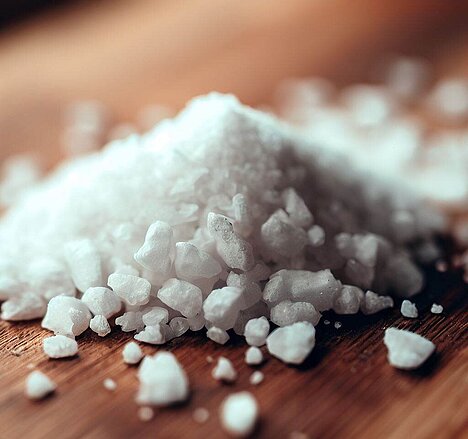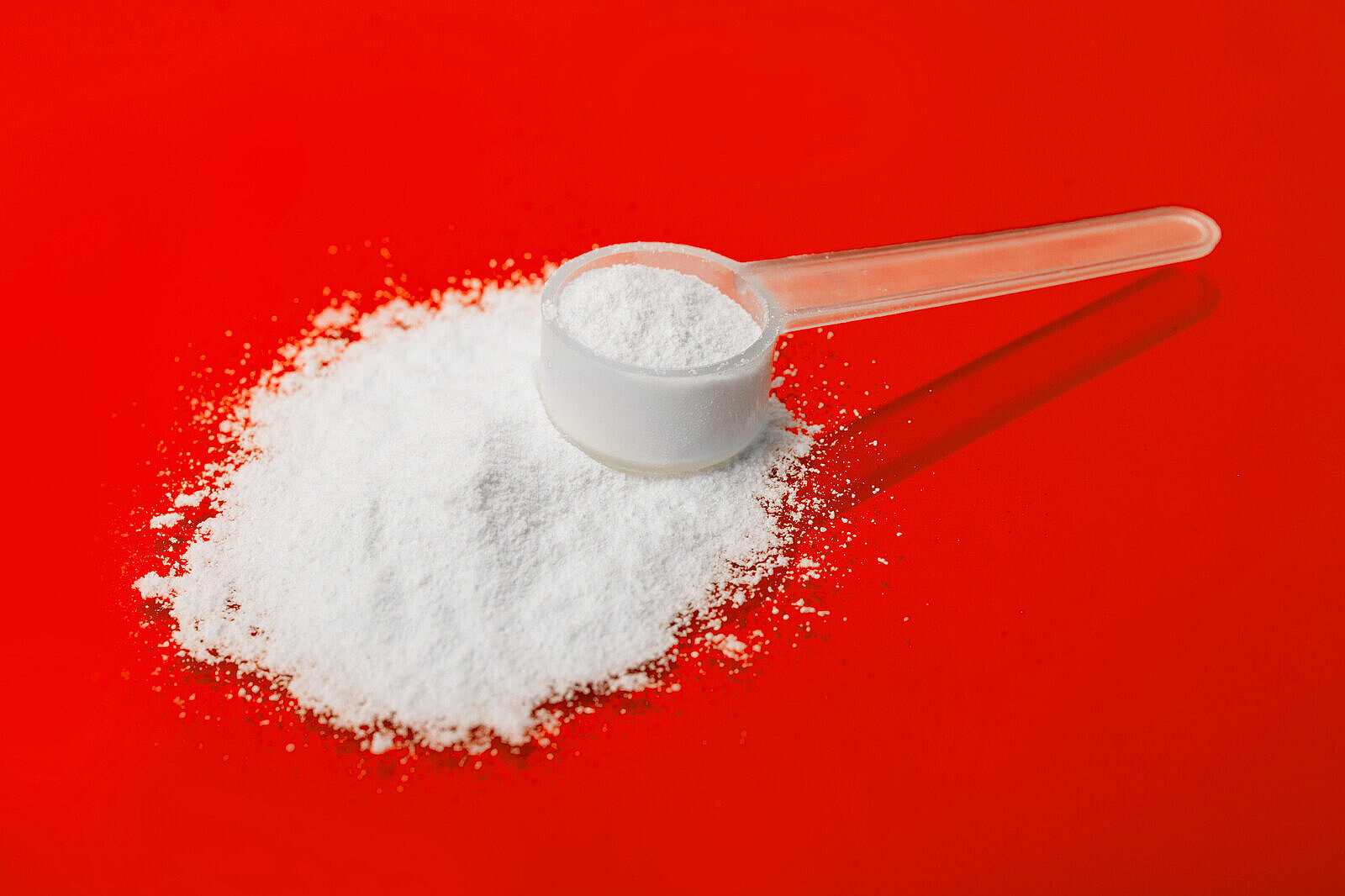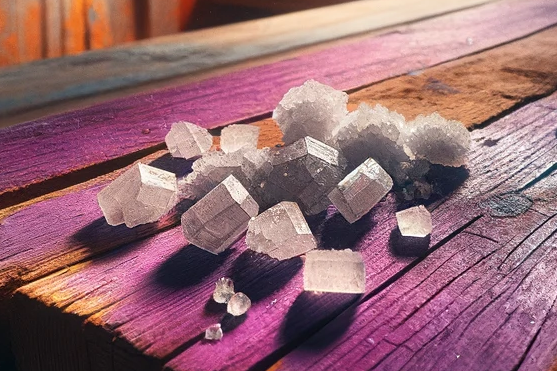Calcium chloride

What is calcium chloride?
Calcium chloride is a salt that consists of two parts chlorine and one part calcium. It is a white, crystalline powder that dissolves easily in water. Calcium chloride has various properties that make it useful for different purposes. For example
- It is a drying agent, i.e. it removes moisture from the environment. This makes it suitable for preserving food or drying gases, for example.
- It is a stabilizer that prevents other substances from decomposing or changing. This makes it suitable for the production of cheese or tofu, for example.
- It is a flavor enhancer that intensifies the taste of salty or sour foods. It is therefore suitable for the production of pickled vegetables or soy sauce, for example.
What effects does calcium chloride have on dogs?
Calcium chloride can have both advantages and disadvantages for dogs. Here are some examples:
Benefits:
- Calcium chloride can help meet the calcium needs of dogs suffering from a deficiency. Calcium is an important mineral for the health of bones, teeth and muscles in dogs. A deficiency can lead to weakness, tremors and bone fractures.
- Calcium chloride can help regulate the blood pH of dogs suffering from acidosis. Acidosis can lead to respiratory distress, vomiting or unconsciousness. Calcium chloride acts as a buffer and neutralizes excess acid in the blood.
Disadvantages:
- Calcium chloride can lead to a calcium overdose if it is administered in too large quantities or too frequently. An overdose of calcium can lead to kidney stones, cardiac arrhythmia or coma.
- Calcium chloride can cause irritation of the mucous membranes if it comes into contact with the eyes, nose or mouth. The irritation can lead to redness, swelling or pain.
How can you give your dog calcium chloride safely?
Calcium chloride is not toxic to dogs, but it is not a miracle cure either. It should only be given after consultation with a vet and in appropriate amounts. Here are some tips on how to give your dog calcium chloride safely:
- Only give your dog foods or products with calcium chloride that are suitable for dogs. Avoid foods or products with calcium chloride that are intended for humans or contain other ingredients that may be harmful to dogs.
- Only give your dog as much calcium chloride as recommended by your vet. Follow the dosage instructions on the packaging or label exactly. Do not exceed the recommended amount or frequency.
- Monitor your dog for possible side effects after administering calcium chloride.
Calcium chloride is an ingredient with various properties and applications. It can have both advantages and disadvantages for dogs.
If you notice any signs of hypersensitivity or poisoning in your dog, you should see your vet immediately. We are not a substitute for a vet, but we try to be as accurate as possible. Every dog reacts differently and we recommend you get a second opinion or consult your vet if in doubt.
Stay healthy and take good care of your four-legged friend!😊
Similar to Calcium chloride
Your dog needs a sufficient amount of magnesium every day to stay healthy and productive. The recommended daily dose is around 10 to 12 milligrams per kilogram of body weight. Magnesium can be...
Potassium chloride (KCl) is the potassium salt of hydrochloric acid. It forms colorless, salty-bitter tasting crystals that dissolve well in water. Potassium chloride is approved as a food additive...
Sodium chloride fulfills several important functions in the dog's body. Firstly, it is involved in the production of hydrochloric acid in the stomach, which is necessary for digestion. Secondly, it...
Calcium sulphate is a white, crystalline powder that is slightly soluble in water. It can occur in various forms, depending on how much water it contains. The best-known form is gypsum, which...



